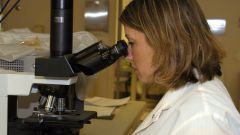Instruction
1
There are acute and chronic renal failure. First expressed in the defeat of the renal tissue, which causes a decrease in amount of urine or complete lack of it. Chronic kidney failure develops on the background of other diseases of the kidney (pyelonephritis, urolithiasis, etc.). It generally leads to irreversible violations of their functions.
2
Treatment of acute renal failure that comes on suddenly, starting with the fact that the patient is placed in the intensive care unit, where they help him cope with the pain, maintain the fluid level in the body and prevent the poisoning of the body with metabolic products.
3
As a rule, acute renal failure requires extracorporeal blood purification (hemodialysis). This procedure is carried out daily. The course of treatment depends on how high the degree of intoxication of the patient. However, hemodialysis results in only a temporary improvement in the condition of the patient. To support the body in norm should be several times a year to take the course of purification of blood.
4
If the patient has a kidney do not take the urine, prescribed high calorie diet. Foods rich in protein, sodium and potassium is completely expelled. Once the kidney function is partially restored, give the patient plenty of fluids, gradually introduce proteins and table salt.
5
In the treatment of chronic renal disease is assigned diet with the obligatory restriction of salt and protein. In some cases, prescribe diuretics, especially if the disease is accompanied by high blood pressure. As a rule, in chronic renal failure there is a shortage of calcium, so the patient must take vitamin D. In severe cases leading to renal dysfunction, there is a patient on hemodialysis. In this situation, the most effective treatment is transplantation of a donor kidney.
Note
Kidney failure usually occurs in three stages: initial, conservative and terminal. Prerequisites to this disease can be hereditary kidney disease or metabolic disorders and catarrhal diseases of the urinary tract, cystitis and even cancer. To cure renal failure will help folk remedies.
Useful advice
Renal failure is a pathological condition in which partially or completely lost the ability of the kidneys to produce and/or excrete urine and, as a consequence, develop serious violations of water-salt, acid-base and osmotic homeostasis, which lead to secondary damage to all body systems. The clinical course distinguish between acute and chronic renal failure.




